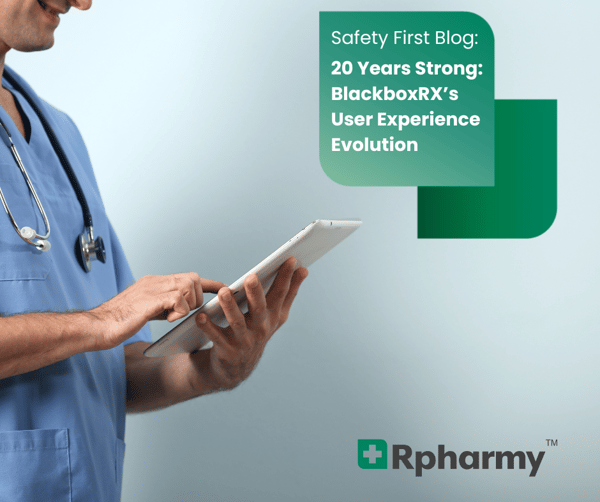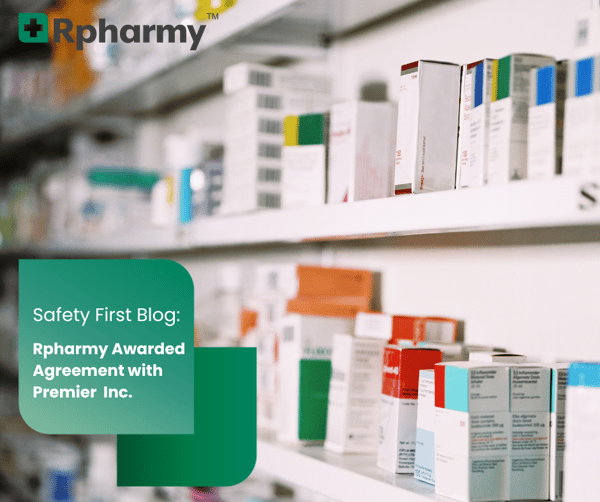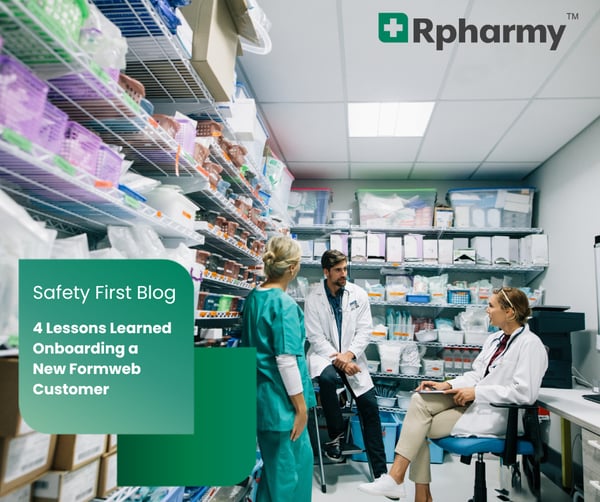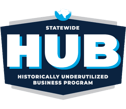Rhazdrugs’ most significant and beneficial feature is its ability to integrate directly into an Electronic Health Record (EHR). Our product metrics show that nurses and clinicians are nearly twice as likely to access vital hazardous drug safety information when it is accessible directly from the EHR compared to when it is not. This can be critical in patient outcomes and healthcare worker safety.
How Rhazdrugs Integration with Cerner Transformed One Healthcare System
Rpharmy Rounds: UX Marks the Spot for Nursing USP <800> Feedback
Hi folks! We’ve always described our mission as a community of pharmacists sharing best practices to improve the practice of pharmacy. We’re always asking questions because we want to know YOUR stories.
In the spirit of sharing, we’re introducing a new series called “Rpharmy Rounds” where we share stories from your peers about their pain points, successes, and innovations. We only learn and grow when we push ourselves outside of our comfort zones and know when to ask for help. We can’t wait to share some of the things we’ve heard from healthcare leaders.
Welcome to the Rpharmy School of Hard Knocks, where we wholeheartedly believe that embracing the successes and challenges of others enhances our learning!
At Rpharmy, our solutions are deployed across hundreds of hospitals. Through our collaborative relationships with these institutions, we have gained deep insights into their challenges and wins. These five lessons learned during the USP <800> compliance process have percolated to the top through these relationships. We hope these insights help as you continue the critical work of protecting healthcare workers from the dangerous effects of hazardous drug exposure.
Press Release: Rpharmy Overhauls BlackboxRX User Experience, Interface
Medication Safety Solution Provider Significantly Upgrades Only Comprehensive Online Database of Medication Boxed Warnings
20 Years Strong: BlackboxRX’s User Experience Evolution
A few weeks ago, we wrote about our quest to improve the user experience across our software. Now we’re back to let you know that our new and improved BlackboxRX is live!
A User Experience Overhaul: Rpharmy’s Quest to Improve Healthcare Safety
Our #1 highest priority is improving patient outcomes and the health and well-being of healthcare workers. We accomplish this by making your critical job easier through easy-to-use but in-depth safety information platforms. We never see our job as complete in this area and are always working for you.
In the last few years, we’ve focused on ensuring our products meet your USP <800> compliance and medication safety needs by ramping up the drug monograph and safety information. More recently, we recognized a need to improve the user experience (UX) of our solutions, enhancing the look, feel, and functionality of our products. We embarked on an extensive UX project with Ix (pronounced Nine), a talented user experience designer. From seemingly minor customer requests to our latest UX endeavor, it’s all for you!
Press Release: Rpharmy Awarded Drug Information and Surveillance Solutions Agreement With Premier, Inc.
Formulary Management, Hazardous Drugs Safety Information SaaS Provider Joins Group Purchasing Organization to Help Improve Patient, Healthcare Worker Safety
Rpharmy Awarded Drug Information and Surveillance Agreement with Premier Group Purchasing Organization
We are thrilled to announce that Rpharmy has been awarded a national group purchasing agreement for Drug Information and Surveillance Solutions with Premier Inc., a group purchasing organization, in a shared mission to enhance patient and healthcare worker safety through the use of Rhazdrugs and Formweb. This partnership underscores our collective commitment to improving healthcare outcomes.
A Whole New World of Formulary: 4 Lessons Learned Onboarding, Redefining Our Place Against Competitors
At Rpharmy, we place the highest value on our customer relationships. If you know us, we’re always asking you what makes your day-to-day tedious so that we can alleviate that pain. This is how both Formweb and Rhazdrugs were created (check out how we got started here)! Naturally, when a new customer joined the Formweb family recently, we wanted to know what we were doing right and what we could do to make their lives easier.
During a recent visit with a health system implementing Formweb, they shared why they chose Formweb and the main differences they noticed between our software and their previous formulary management solution.
Here are our top 4 takeaways from that conversation.
Enhancing Healthcare Safety: Customizing Hazardous Drug Protocols to Include Illicit Drug Exposure
Every hospital or healthcare facility is distinctive in two critical ways concerning hazardous drugs: their unique hazardous drugs list and how they communicate the safety information related to those drugs. Of course, there are regulations and requirements like USP <800> and NIOSH lists, etc., that dictate aspects of the list or the communication requirements, but outside of those standards, organizations have room to customize for their needs.
One of those unique needs is to identify and communicate safety protocols to protect healthcare workers from unintentional occupational exposure to “illicit drugs” or what other organizations refer to as “street drugs.”









